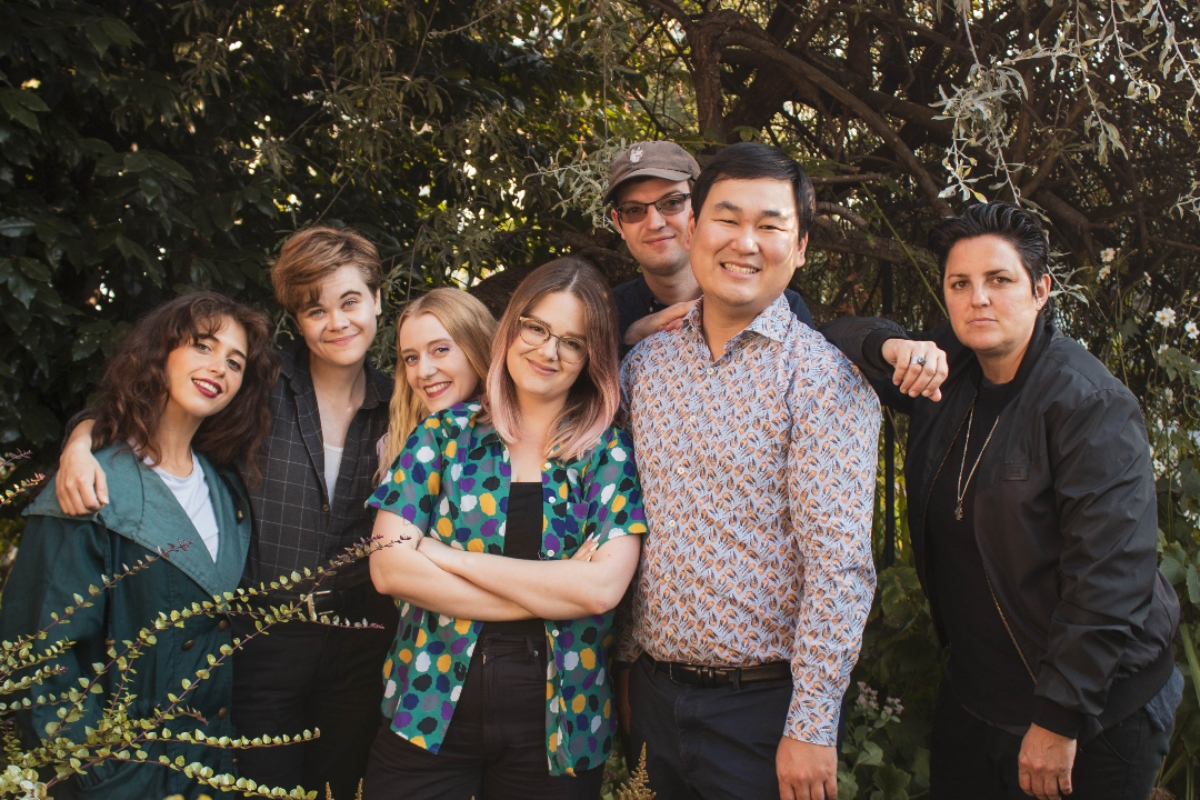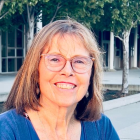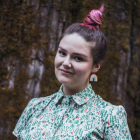Support strong Canadian climate journalism for 2025
These in-their-own-words pieces are told to Patricia Lane and co-edited with input from the interviewee for the purpose of brevity.
Anna Bigland-Pritchard uses opera to raise awareness of queer and environmental issues. As co-founder of Gay4Nature, she and her colleagues invite audiences to explore classical music through a queer and ecological lens.
Tell us about your project.
With Alex Chen, my co-director, pianist and singer, we are currently in post-production for Green, a film funded by the Canada Council for the Arts. The film is set to music by Debussy and explores eco-anxiety and queer joy.
What will audiences experience?
I play a young queer person who finds herself increasingly isolated as she suffers debilitating climate grief and anxiety. Her life begins to turn when a friend takes her to a country fair for some fresh air and wholesome fun. There, she meets another queer person and falls in love. Through these relationships, she is able to develop resilience and claim joy as her birthright.
The saga is told in six separate and beautifully filmed music videos, which tie together to form the whole, each with costumes, acting and dancing. I sing Debussy’s six-song cycle, Ariettes oublieés, which is full of natural imagery poetry.
How did you conceive the project?
The story is a bit autobiographical. I have been anxious about the climate for a long time. I studied music at university and fell in love with opera as a powerful storytelling medium. The narratives in many operas often do call for justice. But stereotypical opera is often lacking in diversity, and there are serious issues in some of the older opera canon with sexism, racism, homophobia, transphobia and xenophobia. For me, my queerness, my care of the Earth and my art are deeply connected due to my desire for equity and beauty.
I am fortunate to have a first-rate team working with me, all of whom, but one, are also queer. It is a labour of pure delight to knit our identities together and tell a story in which queer people get to live happily ever after.
Have you linked the environment to your music in other ways?
For me, climate justice and singing are very connected. I grieve my understanding that a career with travel just won't be possible for me (or most people) because we have no choice but to cut carbon. I still have dreams and ambitions as a singer that I am working toward. I have a more expansive understanding of "success" than I used to.
I came to Victoria, B.C., to study with Nancy Argenta and realized it is a small city with outsized musical opportunities, a high acceptance of queer culture and plenty of natural beauty. I lead the music ministry at Oak Bay United Church, where the number of parishioners who care and want to be involved is growing, and we can explore what we believe through art. In 2023, Gay4Nature received a City of Victoria grant to take Bach’s Coffee Cantata into local coffee shops. I give singing and songwriting lessons with a focus on music as self-care, and I direct a choir. Last year, I performed the role of Eve in Haydn's The Creation with the Victoria Philharmonic Choir. Settling here has allowed me to align my work with my values.
What makes your work hard?
Even though Victoria is accepting of diversity and people here are worried about climate change, it is not part of our accepted economic system that working-class performing artists be compensated fairly for their work.

What gives you hope?
As part of a loving community, it is possible for me to experience beauty and resilience even as I accept that the grief we feel is not going to end. Together, we are able to transform our pain into beauty and purpose. Hope comes more often to me in queer spaces.
What do you see if we get this right?
One of my favourite meditations is to visualize myself at 65 seeing a world that has stopped burning carbon. As a result, the biodiversity loss that I lived through is beginning to return, the summers are clearer than when we couldn’t breathe because of wildfire smoke, and young people are more hopeful than we were able to be.
What would you like to say to other young people?
Don’t avoid the sadness that comes with understanding the losses brought by extreme weather, fire, floods and species extinction. Instead, find a community that will support you to be yourself, and aligns with your values. Find a Climate Café, a climate-aware therapist, or join a local climate justice activist group. Resilience grows in community. The first step to powerful action is being loving to yourself as you work through challenging feelings.
What about older readers?
Please don’t give up. It is very demoralizing to hear older people say they used to be active, but not enough has changed. Since they won’t be here anyway, they are checking out of the work. You have a legacy to leave. It is better if it is one of love. If you choose that path, it will bring you incredible joy and connection.







Comments